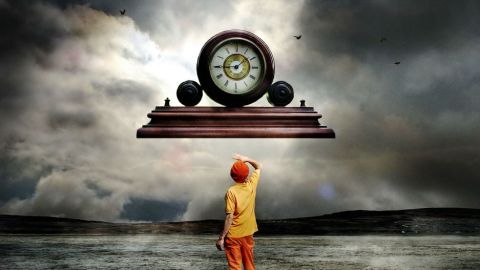Do Less, Accomplish More

What’s the Big Idea?
The psychological and economic damage wrought by overwork is well-documented. For a decade now, the Mayo Clinic has been warning about its deleterious effects on mental and physical health. In 2003, the Economic Policy Institute found that overtime costs industry $300 billion dollars a year in stress-related problems. So why are many Americans still afraid to take a vacation?
“We live in a culture that valorizes over-busyness. In so many workplaces, the hero is the one who is putting in the long hours,” says women’s leadership coach Tara Sophia Mohr. “Why isn’t the hero the person that actually can get amazing work done and leave at a reasonable time?”
When it comes to getting things done, Mohr emphasizes quality over quantity. She believes that downtime — or “white space” — is as vital a part of the creative process as the actual time we spend engaged in tasks. But creativity requires leaving your comfort zone and trying new things. “If you’re moving toward your knock-the-ball-out-of-the-park life and career, you’re going to be taking a lot of risks” — balance uncertainty “with things that feel safe and really ground you.” Mohr’s advice is to evaluate your work based on the final product, not the amount of hours you’ve logged creating it.
Can’t find the time? Make it. Pareto’s Law is a management principle that states that 80% of inputs are derived from 20% of outputs, so for example, 80% of an entrepreneur’s cash flow comes from only 20% of customers. On an individual level, it suggests that 80% of a person’s success comes from 20% of his or her efforts. If you want to improve your efficiency you must know your own strengths and talents. What is it that you’re doing that is really getting results? What can you do that no one else on your team, or your household, can? Focus your energy on that.
What’s the Significance?
We need white space because “that’s when we process what has actually been happening in our lives, when we process emotions, our reactions to things, when we can work through and let go of resentments, when we can feel and come to manage our fears. We also need white space because that’s often when our most creative ideas emerge, when our real desires for our lives can speak.”
Does that mean abandoning your work ethic? “I think that all of us have to do the work of claiming our authentic lives, and that means leaving the herd,” says Mohr. “What is actually fulfilling for you won’t look exactly like the lives of your family members or your friends or your coworkers. Even though this can feel like departing from the fold, when we step into our authentic lives it actually allows us a deeper level of connection and community with the people in our lives because they’re really experiencing us, the real us.”





